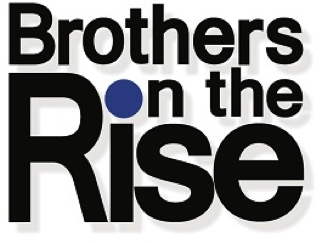Brothers on the Rise (BOTR) was launched in May 2008 to address the multiple challenges disproportionately affecting low-income boys and young men of color in Oakland. Its mission is to empower male youth of color to achieve individual success, develop healthy relationships and contribute to a more just and equitable society. Toward this end, BOTR implements the following gender-responsive, culturally affirming service programs that are grounded in youth development, trauma and healing-informed care, empowerment, and social justice:
Brothers, UNITE!, a manhood training program that equips older elementary and middle school-aged boys with literacy, life skills and leadership;
Brothers Helping Brothers, group counseling for boys in pre- and early-adolescence, along with case management and parent engagement;
Lift a Brother Up, a college and career readiness program that develops high school-aged young men as future health, human service and social change professionals; and
Trail Brothers, a program that provides male youth of color with environmental access, education and exploration to help ground them and develop them as stewards and activists.
BOTR also builds community capacity and affects systems change through training, curricula development, coaching, consultation, convening, research and writing. These activities promote more effective and equitable practices, policies and procedures, and equip schools, nonprofits and public agencies to better serve boys and young men of color. For instance, with support from the Zellerbach Family Foundation, BOTR leveraged a training manual produced for Alameda County’s Behavioral Health Care Services, designed to develop the system’s cultural competence in serving African American males. Building on this work, BOTR facilitates learning communities that certify school- and community-based clinicians to deliver its Brothers Helping Brothers model, thereby institutionalizing gender and culturally responsive group counseling for boys of color.
Additionally, in collaboration with San Francisco State University Professor Shawn Ginwright and the César Chávez Institute, BOTR produced a research synthesis on out-of-school time work with male youth of color which was subsequently published in Afterschool Matters.
A member of various convening and organizing groups, including the Oakland-Alameda County Alliance for Boys and Men of Color coordinated by Urban Strategies Council, the Peace Promotion group of East Oakland Building Healthy Communities, and the Community Roundtable for California’s Select Committee on the Status of Boys and Men of Color, BOTR contributes to a growing movement dedicated to empowering males of color and catalyzing greater justice and equity.
Outcomes
From its initial school site and direct service focus, BOTR has grown to directly serve more than 250 youth annually across multiple school and park sites throughout the East Bay; and it has impacted thousands more through training and technical assistance provided to schools, public social service agencies, and community-based providers throughout the Bay Area and beyond.
Through its direct services, training and systemic work, BOTR seeks changes on three levels:
Micro (youth) level outcomes
Youth build core resiliency attributes of confidence, conflict resolution and coping; gain a greater understanding of responsible manhood; and engage in community services and social action to develop leadership skills and inspire change within their schools, families and communities. Watch “My Voice Matters”
Mezzo (provider) level outcomes
More males of color enter the health, human service and social change workforce; and community-based providers and school personnel gain valuable knowledge and skills to increase their cultural competence and effectiveness in serving male youth of color.
Macro (systems) level outcomes
Schools and agencies are better equipped and prepared to more effectively and equitably address the needs of urban boys of color through school-based services, which contributes to a reduction in the disproportionate number of minority students who are disciplined at school or involved in special education and juvenile justice systems.


